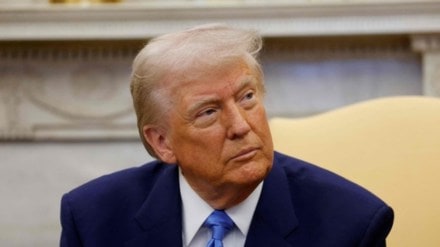US President Donald Trump initiated a new trade investigation on Saturday that could lead to additional tariffs on imported lumber, compounding existing duties on Canadian softwood lumber and the impending 25% tariffs on all Canadian and Mexican goods set for next week.
This marks Trump’s third tariff probe in a week. He signed a memorandum directing Commerce Secretary Howard Lutnick to launch a national security investigation into U.S. lumber imports under Section 232 of the Trade Expansion Act of 1962—the same law he previously used to impose tariffs on global steel and aluminum imports.
The probe will examine derivative products made from lumber, potentially including furniture like kitchen cabinets, which may involve U.S. lumber that was initially exported, according to a White House official. The official stated that the Commerce Department would fast-track the investigation but did not specify a timeline.
Additionally, Trump ordered measures to boost domestic lumber supply, including streamlining the permitting process for harvesting on public lands and enhancing the salvage of fallen trees from forests and waterways. A White House fact sheet outlined plans for new or updated agency guidance to expedite timber production approvals, particularly under the Endangered Species Act.
White House trade adviser Peter Navarro claimed the investigation would counteract the alleged dumping of lumber into U.S. markets by major exporters such as Canada, Germany, and Brazil. “That stops today with a pair of Trumpian actions designed to bolster both the supply of and demand for American timber and lumber,” Navarro said in a call with reporters before the signing.
The White House official warned that increasing reliance on imported lumber poses a potential national security risk, citing the U.S. military’s significant consumption of lumber for construction and the broader economic vulnerability caused by dependence on foreign supplies despite ample domestic resources.
Although the official did not disclose potential tariff rates under the new Section 232 probe, Trump recently mentioned he was considering a 25% tariff on lumber and forest products. Any new tariffs would add to the existing 14.5% combined anti-dumping and anti-subsidy duties on Canadian softwood lumber, a longstanding point of contention between Washington and Ottawa. The U.S. argues that Canada’s low stumpage fees on public lands constitute an unfair subsidy, whereas most U.S. lumber is harvested from private land at market rates. Critics, particularly homebuilders, have warned that these tariffs drive up lumber costs and contribute to home price inflation.
Furthermore, any new lumber duties would be in addition to the 25% general tariffs Trump has threatened on all Canadian and Mexican imports. These tariffs, set to take effect Tuesday, are contingent on whether the two countries demonstrate progress in securing their borders and curbing fentanyl trafficking.
The lumber probe follows Trump’s recent directives for new Section 232 investigations. On Tuesday, he ordered an inquiry into copper imports, citing the need to rebuild domestic production of a metal critical for electric vehicles, military hardware, and the power grid. On February 21, he instructed U.S. Trade Representative Jamieson Greer to revive investigations into tariffs against countries that impose digital services taxes on U.S. tech firms—potentially targeting Canada, France, Britain, Italy, Spain, Austria, India, and Turkey.
With inputs from Reuters
